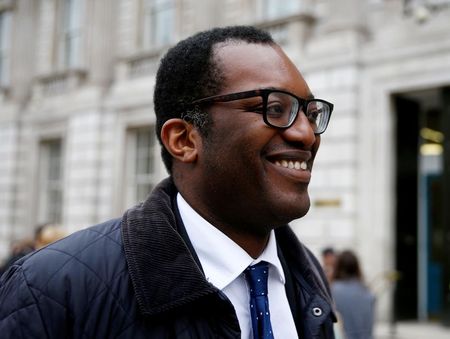What is ‘pro-growth’ chancellor Kwasi Kwarteng’s legacy?

Like Tony Blair and Gordon Brown, David Cameron and Sir Nick Clegg, it was a political partnership that ended in disaster.
Prime Minister Liz Truss and Chancellor Kwasi Kwarteng – her long-time acolyte – and their cataclysmic mini-budget still cast a long shadow from Westminster to Threadneedle Street.
Somewhat optimistically dubbed the ‘Growth Plan’, their unfunded tax cuts were delivered without costings from the Office for Budget Responsibility (OBR) and sparked a sell-off of UK assets and a spike in gilt yields, triggering the pound to drop to almost level with the dollar.
Quickly relieved of his position, Kwarteng, who famously became aware of his sacking via the Twitter feed of Times political editor Steven Swinford, returned to the backbenches.
Politically, order was soon restored, with the appointment of Jeremy Hunt, who one finance figure recently described to me as ‘oozing stability’, and the Tory regicide against Truss.
Sunak and Hunt’s initial approach was to prioritise economic harmony – to the exclusion of all else.
Their efforts met some success, with the National Institute of Social and Economic Research (NIESR) now claiming they’re “not sure there was that much permanent damage”.
More broadly, their core argument – if not its execution – has been increasingly accepted into the mainstream.
Labour and the Tories both cite economic growth in their five missions or pledges to the country, with Starmer even vowing to secure the G7 top spot, and sustain it.
The urgent need for growth and its benefits are now part of the orthodoxy so derided by Truss and Kwarteng, with policies from planning reform to unlocking pension capital and even the much-debated mirage of £28bn in green investment promising to deliver it.
Kwarteng did not languish quietly for long, soon cropping up in a Led By Donkeys, a spoof campaign group, sting – recorded agreeing to lobby for a fake South Korean firm for £10,000.
However, the timing of his resignation, coming just hours ahead of Truss’s launch of the ‘Popular Conservatives’ outfit, speaks volumes.
First elected to his Surrey seat under David Cameron , the 48-year-old tweeted: “Yesterday I informed my association chair[man] of my decision not to stand at the next general election.
“It has been an honour to serve the residents of Spelthorne since 2010, and I shall continue to do so for the remainder of my time in Parliament.”
His takeaway appears to be the inverse of hers: their ideas were tried, and any subsequent popularity – Conservative or otherwise – is best enjoyed by others.
